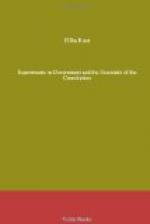This would be true if only one statute were to be considered at one election; but such simplicity is not practicable. There always will be, and if the direct system is to amount to anything there must be, many proposals urged upon the voters at each opportunity.
The measures, submitted at one time in some of the Western States now fill considerable volumes.
With each proposal the voter’s task becomes more complicated and difficult.
Yet our ballots are already too complicated. The great blanket sheets with scores of officers and hundreds of names to be marked are quite beyond the intelligent action in detail of nine men out of ten.
The most thoughtful reformers are already urging that the voter’s task be made more simple by giving him fewer things to consider and act upon at the same time.
This is the substance of what is called the “Short Ballot” reform; and it is right, for the more questions divide public attention the fewer questions the voters really decide for themselves on their own judgment and the greater the power of the professional politician.
There is moreover a serious danger to be apprehended from the attempt at legislation by the Initiative and Compulsory Referendum, arising from its probable effect on the character of representative bodies. These expedients result from distrust of legislatures. They are based on the assertion that the people are not faithfully represented in their legislative bodies, but are misrepresented. The same distrust has led to the encumbering of modern state constitutions by a great variety of minute limitations upon legislative power. Many of these constitutions, instead of being simple frameworks of government, are bulky and detailed statutes legislating upon subjects which the people are unwilling to trust the legislature to deal with. So between the new constitutions, which exclude the legislatures from power, and the Referendum, by which the people overrule what they do, and the Initiative, by which the people legislate in their place, the legislative representatives who




